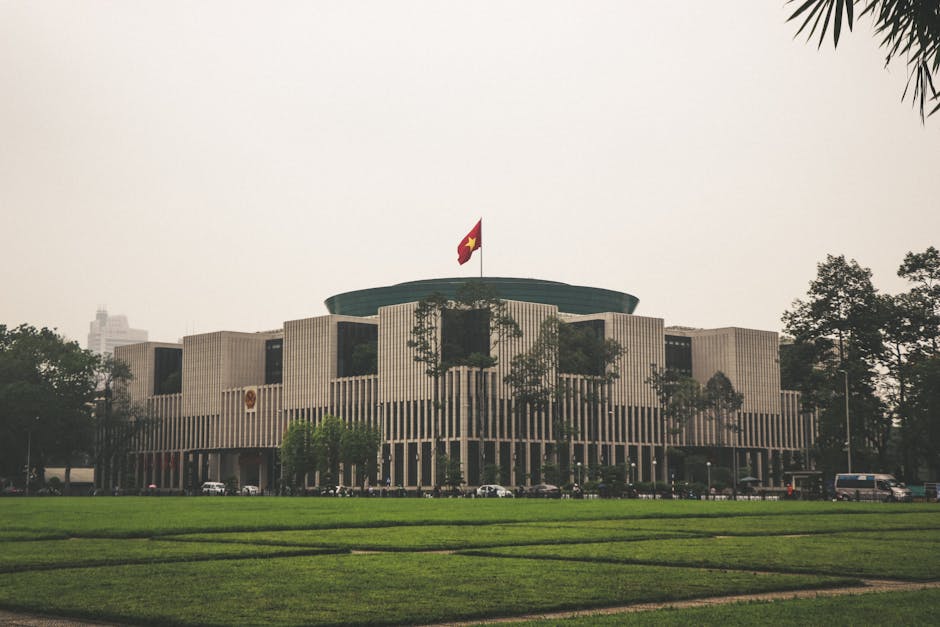The contemporary political landscape is marked by a profound chasm, a widening divide often referred to as political polarization. This increasing divergence in political beliefs and ideologies has significant repercussions, manifesting not only in the rhetoric and discourse but also profoundly impacting the efficacy and direction of policy outcomes. Understanding this connection is crucial for comprehending the challenges facing modern democracies.
A critical facet of this analysis lies in acknowledging the multifaceted nature of polarization itself. It isn’t merely a matter of differing opinions; rather, it involves a hardening of stances, a diminished capacity for compromise, and an elevated emphasis on partisan loyalty over pragmatic problem-solving. This shift fuels an environment where finding common ground becomes progressively more difficult. Consequently, the very process of policymaking itself undergoes transformation.
One significant consequence of polarization is the hindering of consensus-building. Traditional legislative processes, built on the foundations of negotiation and compromise, are frequently undermined. Political actors, increasingly entrenched in their respective ideological corners, are less inclined to engage in constructive dialogue with opposing viewpoints. This reluctance often leads to policies that reflect the priorities of a narrow segment of the electorate rather than addressing the needs of the wider population. The result is a lack of buy-in, potentially hindering the effective implementation and long-term sustainability of policies.
Furthermore, polarization can influence the very selection of policy issues. When political parties prioritize the needs of their base, the agenda tends to become dominated by issues that resonate with particular ideological factions, sometimes at the expense of broader societal concerns. Issues of crucial national importance might be neglected if they are perceived as politically risky or divisive. This selective focus further exacerbates the divisions and hinders progress on issues critical to the wellbeing of the nation.
This limited agenda setting is inextricably linked to the erosion of public trust in government. As policy decisions become increasingly partisan, a growing segment of the populace perceives government as unresponsive and incapable of addressing their needs. This loss of confidence, frequently fuelled by media coverage and social media discussions, can hinder the legitimacy and effectiveness of subsequent policy initiatives. Policies, even if well-intentioned, face uphill battles for public acceptance and implementation when the foundational trust in the process is diminished.
Consider the impact on legislative efficiency. Gridlock, an often-observed outcome of polarization, hampers the ability of legislative bodies to pass legislation. Deadlocked situations often result from a refusal to consider alternative perspectives or even the very concept of compromise. This can translate into policy paralysis, creating a vacuum where critical issues are left unaddressed. This, in turn, can lead to frustration and disillusionment among citizens, further reinforcing negative perceptions about the political system.
Another crucial element is the influence of polarization on public engagement. An environment characterized by intense ideological divides often dissuades individuals from actively participating in the political process. Individuals may feel alienated or overwhelmed by the intensity of political discourse, subsequently leading to diminished participation in voting, civic engagement, and even policy debates. This disengagement further strengthens the already polarized environment, creating a cycle of diminished participation and amplified divisions.
The influence of interest groups and lobbyists also plays a crucial role in this dynamic. In highly polarized political contexts, interest groups often leverage the divisions for their own benefit, contributing to the politicization of policy debates. The result can be policies that overly favor the interests of specific groups while neglecting the broader public good. This further erodes trust and contributes to the perception of government as rigged or serving only a select few.
The impact of political polarization on policy outcomes also extends to the judicial branch of government. Issues that might otherwise be considered technical in nature become entwined with political ideologies, leading to potentially partisan interpretations and rulings. This can cause long-term implications for societal policy and the very interpretation of legal principles.
Furthermore, polarization can negatively impact the quality of policies themselves. Policies developed under pressure may lack thorough consideration and fail to adequately address the underlying issues. The emphasis on quick solutions and partisan gains can overshadow crucial analyses, leading to policies that are ultimately ineffective or even detrimental.
In conclusion, the impact of political polarization on policy outcomes is multifaceted and profound. From the obstruction of consensus-building to the erosion of public trust, from hampered legislative efficiency to diminished public engagement, the effects are wide-ranging and potentially long-lasting. Addressing this challenge requires a concerted effort to foster greater understanding, encourage cross-partisan dialogue, and prioritize the common good over partisan interests. Ultimately, overcoming the barriers of polarization is crucial for maintaining the health and vitality of democratic societies, ensuring their ability to effectively address pressing challenges and fostering a more inclusive and productive political environment.






